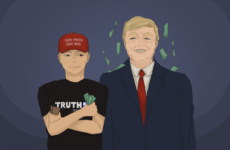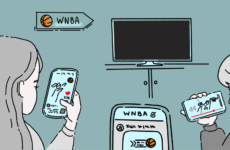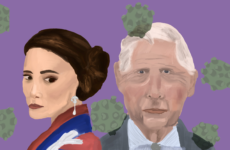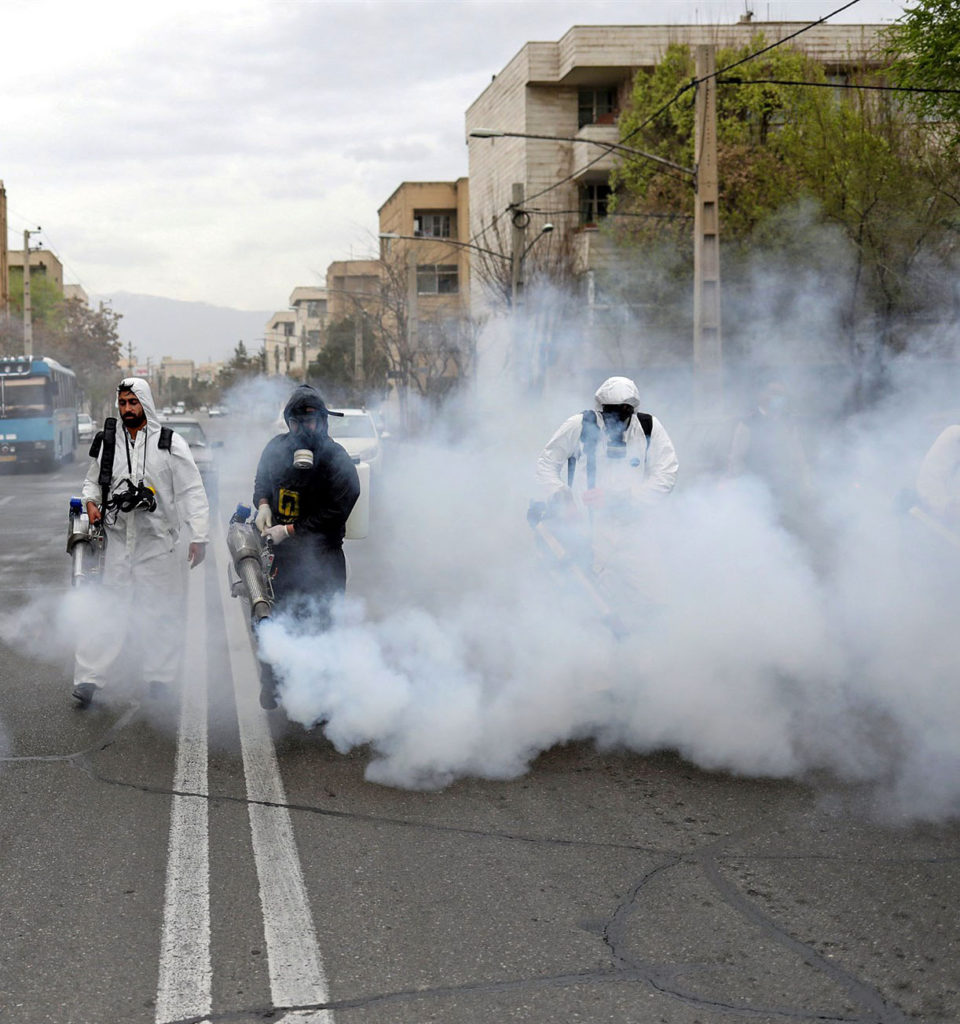
Firefighters in Tehran, Iran, disinfect streets. Photo Courtesy of NBC News.
The combination of limited medical supplies and rigid U.S. sanctions has impeded the ability of impoverished countries to withstand the many challenges of the coronavirus pandemic. Instead of lifting sanctions and aiding countries with climbing death tolls and dwindling resources, the Trump administration has turned a blind eye.
The pandemic and the ensuing race for medical supplies have left underdeveloped countries increasingly vulnerable to the disease. Dr. Amilcar Tanuri, the head of public laboratories at the Federal University of Rio de Janeiro in Brazil, recently told the New York Times that he called private firms on three different continents in search of the chemical reagents needed to produce coronavirus testing samples, only to discover that the U.S. and Europe had already bought up months worth of supplies.
Without these essential supplies, laboratories aren’t able to produce proper coronavirus tests, leaving underdeveloped countries like Brazil in a precarious position in the already uphill battle against the coronavirus.
This may be the nature of supply and demand, but it’s wrong for rich countries to hoard the world’s medical supplies. The situation only worsens in countries that are subject to U.S. sanctions.
On March 24, the United Nations High Commissioner of Human Rights Michelle Bachelet asked countries to reevaluate sanctions for countries that have been exposed to the coronavirus. Bachelet highlighted Iran, Cuba, Venezuela, North Korea, and Zimbabwe — all countries facing U.S. sanctions.
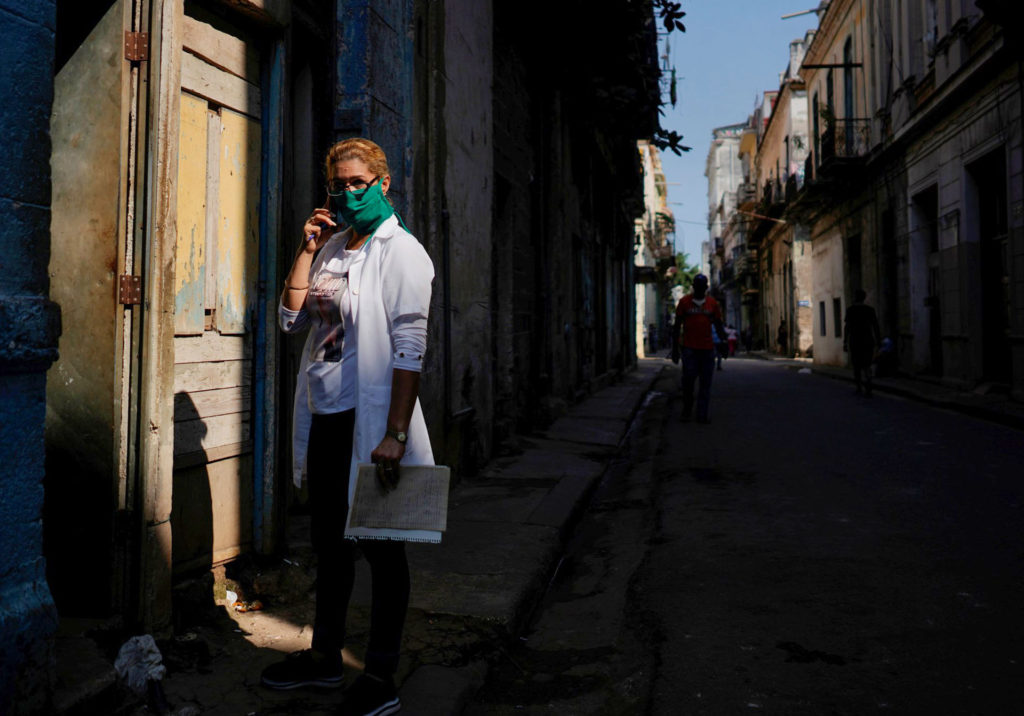
A health worker in Havana, Cuba, waits outside of a patient’s house. Photo courtesy of NBC News
U.N. rapporteurs said in a statement, “In the pandemic emergency, the lack of will of the U.S. Government to suspend sanctions may lead to a higher risk of such suffering in Cuba and other countries targeted by its sanctions.”
On its own, the embargo on Cuba makes exporting goods to the country very difficult — this is only heightened in the midst of the coronavirus pandemic. If the U.S. were to ease sanctions, at least until Cuba effectively handles the coronavirus crisis, millions of innocent lives could be saved.
In Iran, which has been hit particularly hard by the virus, U.S. sanctions remain very strict. Importing lifesaving medical supplies is becoming increasingly slow and more expensive, causing many world leaders to push the U.S. to ease the sanctions.
According to the Guardian, the European Leadership Network and the Iran Project assembled a group of former world officials, including former High Representative of the Union for Foreign Affairs and Security Policy Chief Federica Mogherini, former Director General of the World Health Organization Gro Harlem Brundtland, and senior American diplomats from the Bush, Clinton, and Obama administrations. Together, they signed a statement intended to loosen the sanctions on Iran without completely reversing them.
Under this proposed plan, European companies would be allowed to trade with Iran, and Iran would be able to take out a loan from the International Monetary Fund. However, the Trump administration refused to take part, heightening political tensions between the two countries.
In Venezuela, citizens who were suffering from food insecurity and poverty before the pandemic are now forced to combat harsher conditions with the economy screeching to a halt. The U.S. promised to lift sanctions only if Venezuelan President Nicolás Maduro steps down, which is unlikely to happen anytime soon. Although the Maduro administration plunged Venezuela into economic downfall and ignored the needs of its citizens, the U.S. should not be prioritizing politics when millions of lives are at stake.
Only international aid can save lives in Venezuela, which houses five million refugees, a mere 73 intensive care hospital beds, and a host of doctors with no access to clean water.
Ultimately, the coronavirus pandemic has exposed the widening disparities between rich and impoverished nations. If the U.S. does not reverse sanctions and lend a hand to developing nations, a quick and efficient worldwide recovery from the pandemic is out of the question.

